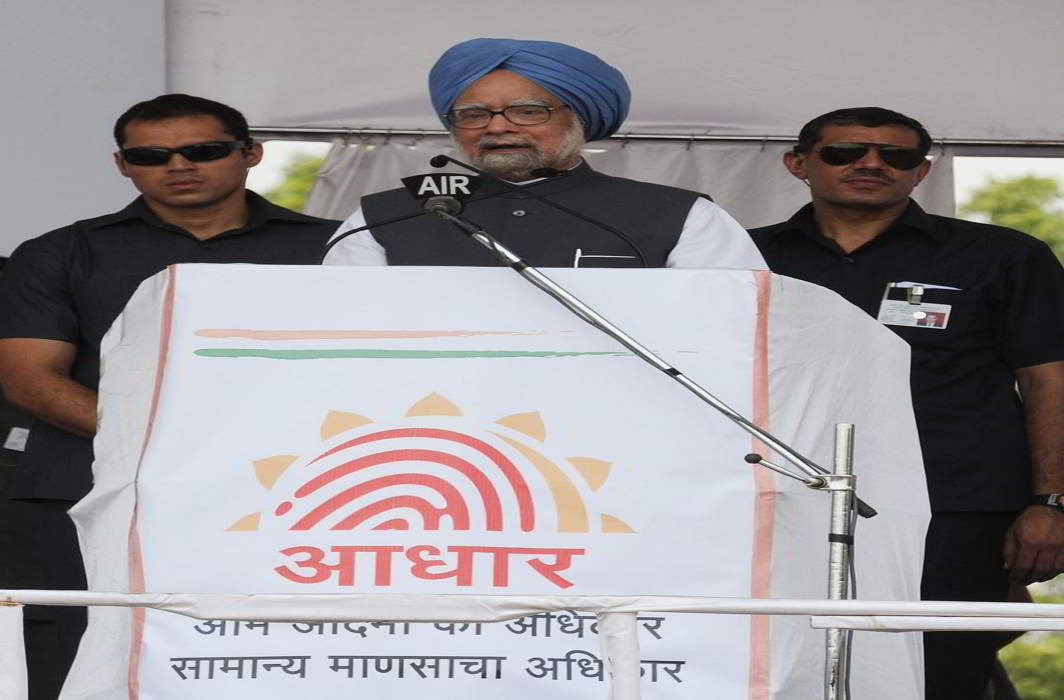Chief Justice JS Khehar’s retort to Attorney General Mukul Rohatgi on February 13 was indeed short and sharp. He said: “If the Speaker says blue is green, we will tell her that blue is blue and not green.” Rohatgi was quoting Article 110 of the Constitution which says whether a bill is a Money Bill is decided by the Lok Sabha Speaker, and the Speaker’s decision is final.
The context was a petition filed by Congress Member of Rajya Sabha, Jairam Ramesh, challenging the National Democratic Alliance (NA) government passing the Aadhaar (Targeted Delivery of Financial & Other Subsidies, Benefits & Services) Bill 2016 as a Money Bill. Ramesh’s counsel is former Finance Minister and fellow-Member of Rajya Sabha, P Chidambaram. The Supreme Court has decided to look at the question closely though it made clear that it was “tentatively” not convinced by the grounds presented by Ramesh, and it posted the case for next month.
It is a known fact that Finance Minister Arun Jaitley fell back on the Money Bill strategy to outflank the opposition in the Rajya Sabha, and let the Bill go through. The Lok Sabha passed the Bill on March 11, 2016, and it was marked as a ‘Money Bill’ by Speaker Sumitra Mahajan. The Bill was passed in the Rajya Sabha with amendments on March 15, 2016. As it was a Money Bill, the Lok Sabha was not bound to accept the amendments, and it would have become a law even if it had been rejected by the Upper House.
The convention of the Money Bill being the sole right of the Lower House stems from British constitutional history. After a series of deadlocks between the House of Commons and the House of Lords, the Parliament of 1911 made it imperative that the House of Lords could not ever vote out a Budget. There are curious twists and turns in the story, but they should not distract us here. But the important issue was that the House of Commons was elected directly by the people, the House of Lords was a nominated House.
As with many other things, the Indian Constitution-makers adopted the Westminster model of the upper hand of the Lower House over the Upper House with regard to the Money Bill, and this was enshrined in Article 110. It has to be noted however that the Rajya Sabha or the Council of States is as much an elected body and not nominated one like the British House of Lords. Rajya Sabha members are indeed elected by members of the state legislatures but they do not for that reason have less constitutional legitimacy.

The Modi government in general has been fidgeting over its lack of majority in the Rajya Sabha, though Jaitley is the one who was most vocal about it. He went to the extent of raising the question as to how relevant is an ‘unelected’ Rajya Sabha and whether it should have any right to block any law passed by the Lok Sabha. Frustrated by the Opposition’s obdurate tactics—the same tactics that the BJP had used as effectively when it was in the opposition from 2004 to 2014 with regard to the Goods and Service Tax (GST), which it blocked effectively as well as the insurance legislation—he fell back on the Money Bill ruse.
What Ramesh/Chidambaram are questioning is the government’s bid to turn any bill into a Money Bill, and pushing the responsibility of the decision on to the Speaker. The non-Congress opposition parties opposed the Aadhaar Bill on counts of it being an unjustified Money Bill, and that it infringed the privacy of individuals, and therefore touched on personal liberty. There is the disturbing provision in the bill that the information collected for providing the Aadhaar number can be used for purposes of ‘national security’, though not any more for the vaguer reason of ‘public interest’.
But the legal tussle in the Supreme Court will revolve around what can be termed a Money Bill if the Government or the Speaker want to extend its meaning to other related bills.
It is a known fact that Finance Minister Arun Jaitley fell back on the Money Bill strategy to outflank the opposition in the Rajya Sabha
Article 110 (1) defines what a Money Bill is under seven heads under ‘a’ to ‘g’ and what is not a Money Bill in Article 110 (2). Article 110 (3) states clearly, “If any question arises whether a Bill is a Money Bill or not, the decision of the Speaker of the House of the People thereon shall be final.” Hence the retort of Chief Justice Khehar about the Speaker’s power to declare a Bill a Money Bill. 110 (4) specifies that before a Bill is sent to the Rajya Sabha and to the President for assent, it has to be endorsed by the Speaker that it is a Money Bill.
The case becomes tricky for the government because while shifting the responsibility of the decision to declare a Bill a Money Bill, it is exposing Speaker Mahajan. It is a well-known fact that the Speaker is situated uncomfortably because he or she is from the ruling party, and there is the general expectation of strict impartiality. But over the years, the Speaker has been in the line of opposition and media fire for not living up to the ideal of the neutral umpire. That is why, Rohatgi talked about how the Speaker’s decision, especially when the Constitution specifies the power so explicitly, in the matter of Money Bill cannot be questioned.
The case becomes tricky for the government because while shifting the responsibility of the decision to declare a Bill a Money Bill, it is exposing Speaker Mahajan
The question that comes up is that this decision is not taken by the Speaker on her own but at the urging of the government of the day. The Government can argue that it was able to convince the Speaker on why a Bill was a Money Bill and the Speaker was convinced on rational grounds. This may raise the prospect that the Speaker may be required to reveal the reasons. There is the tradition of the Speaker giving a ruling and giving the grounds for the ruling. The ruling is not questioned as a matter of parliamentary convention. It seems that the Modi government has put the Speaker in a tight spot in its bid to outwit the opposition in the Rajya Sabha.
There is of course the irony that the Modi government is implementing the idea of Manmohan Singh’s government that the Aadhaar number should be linked to disbursal of subsidies. It was clearly spelt out in President Pranab Mukherjee’s address to the Joint Session of Parliament on February 21, 2013!



